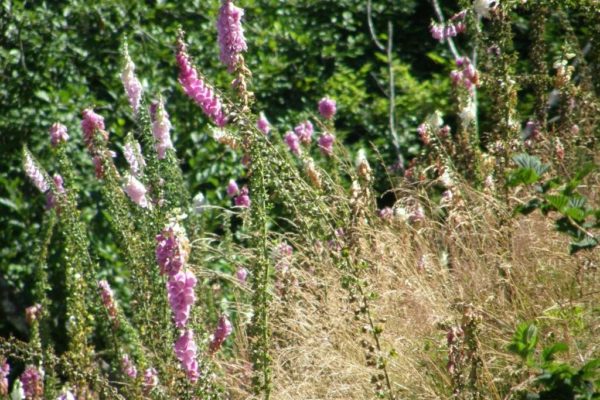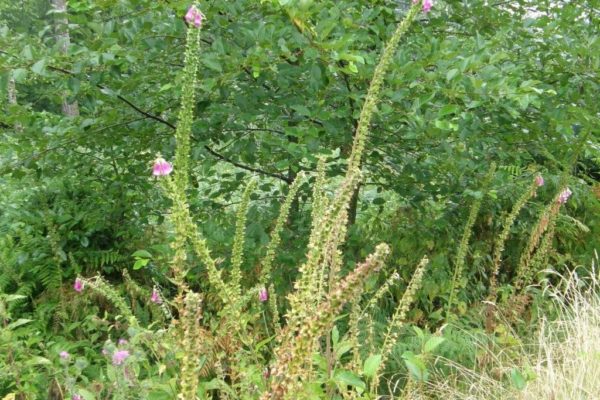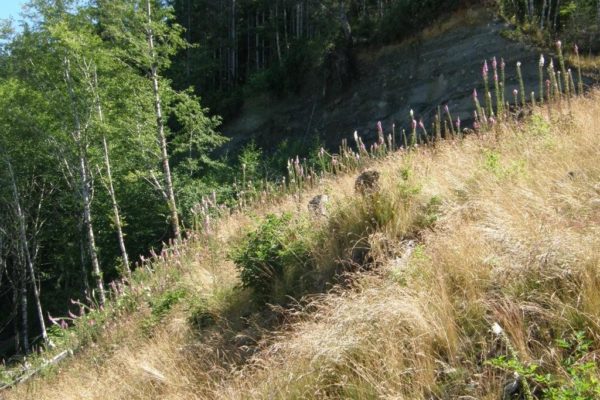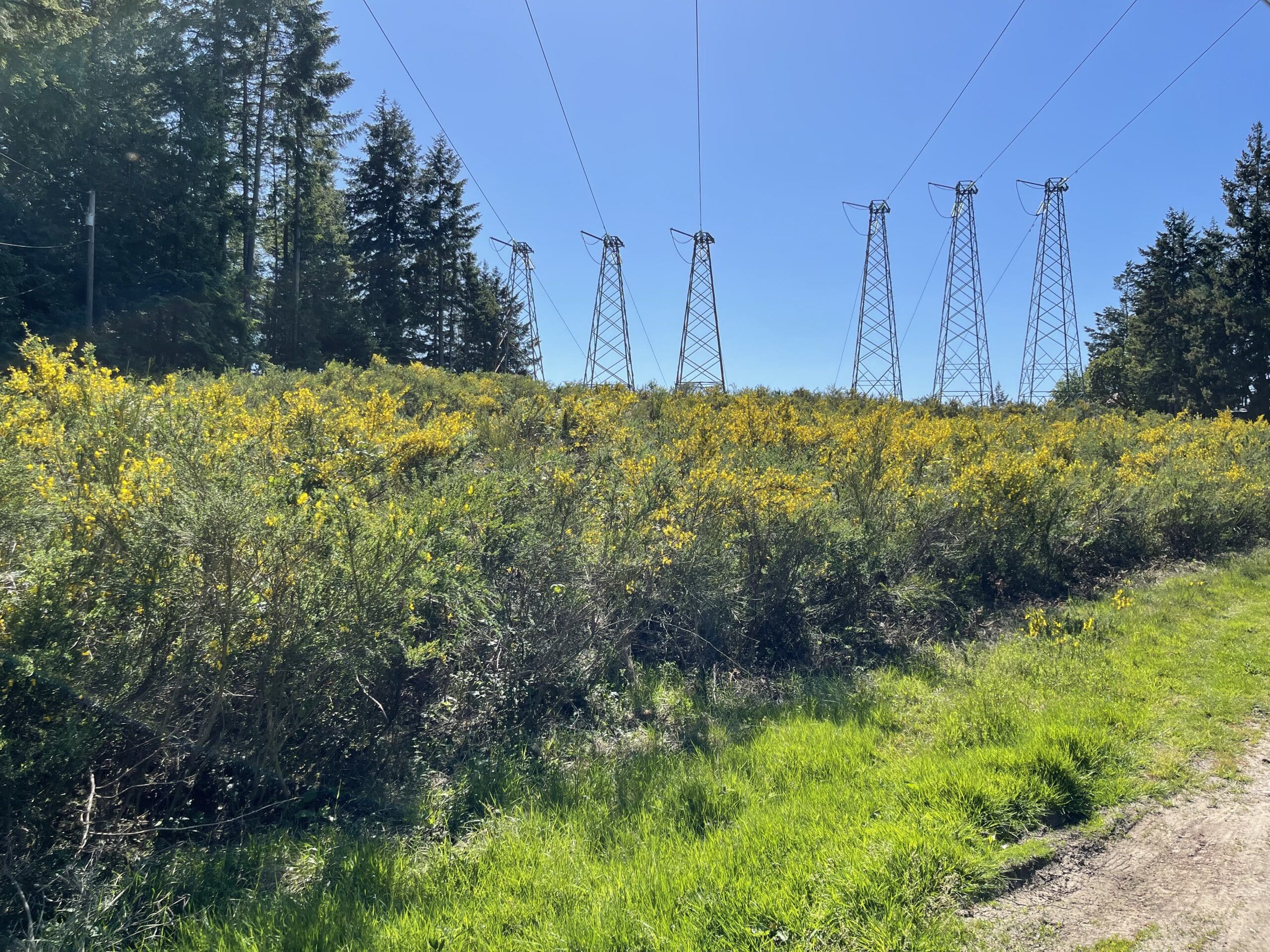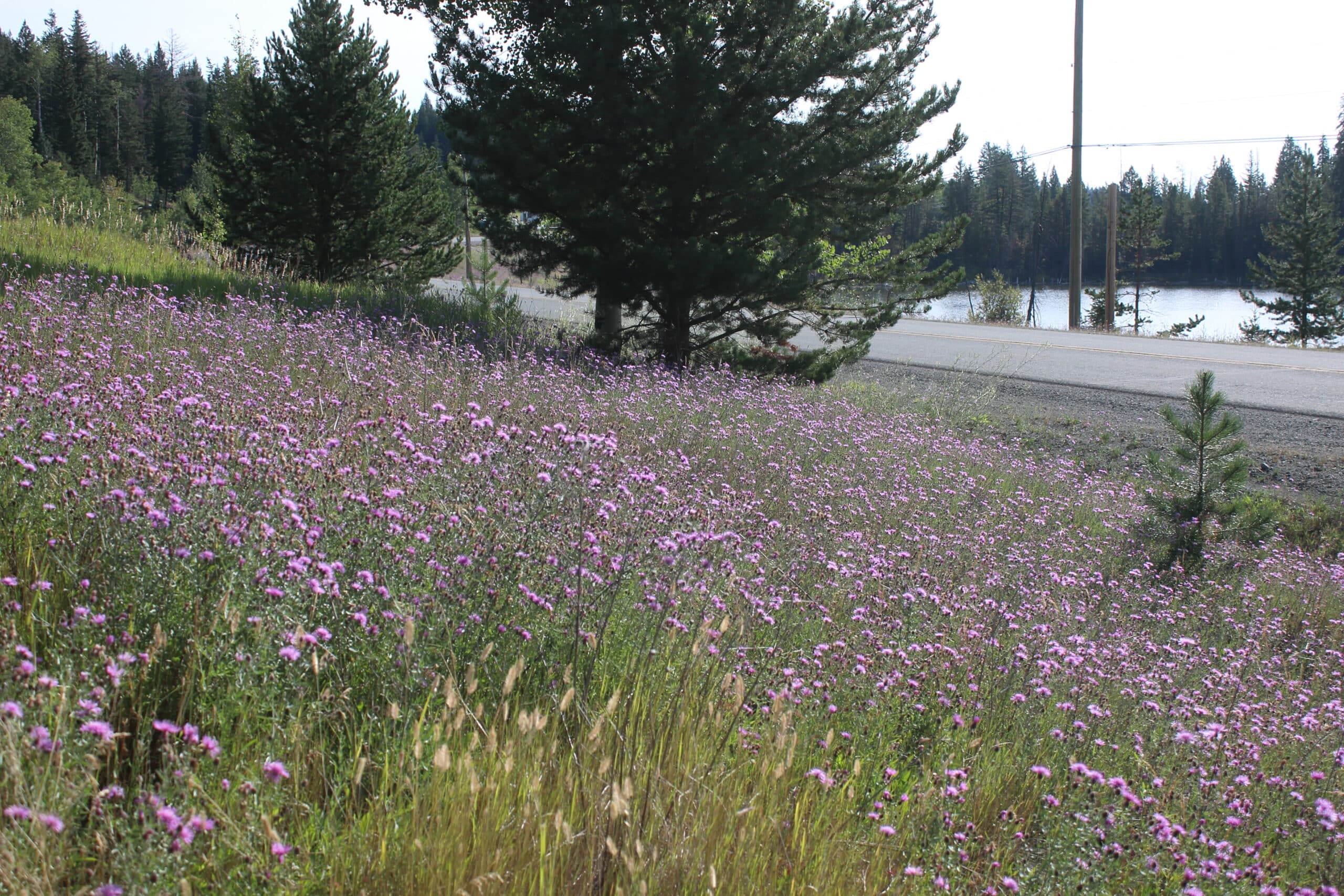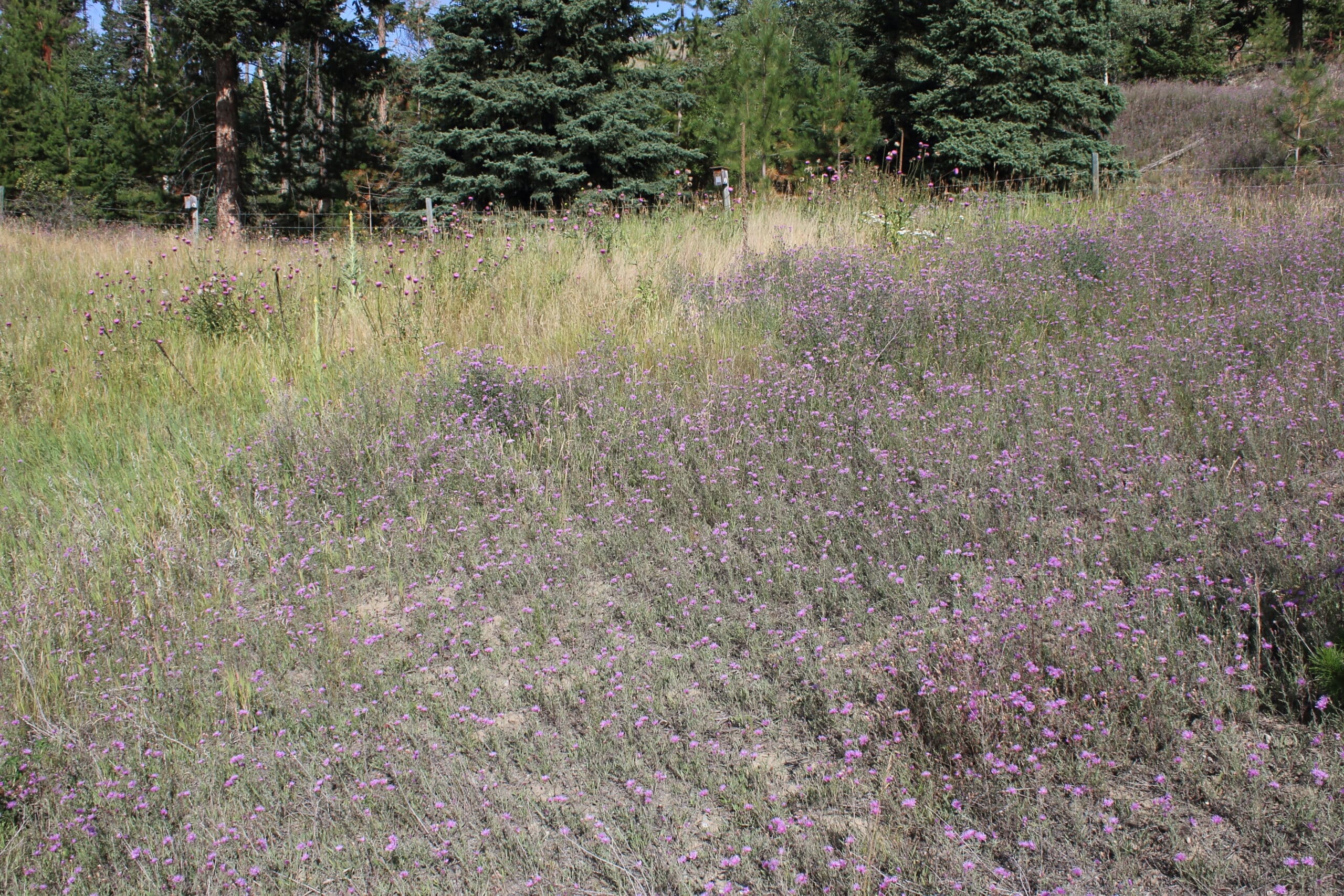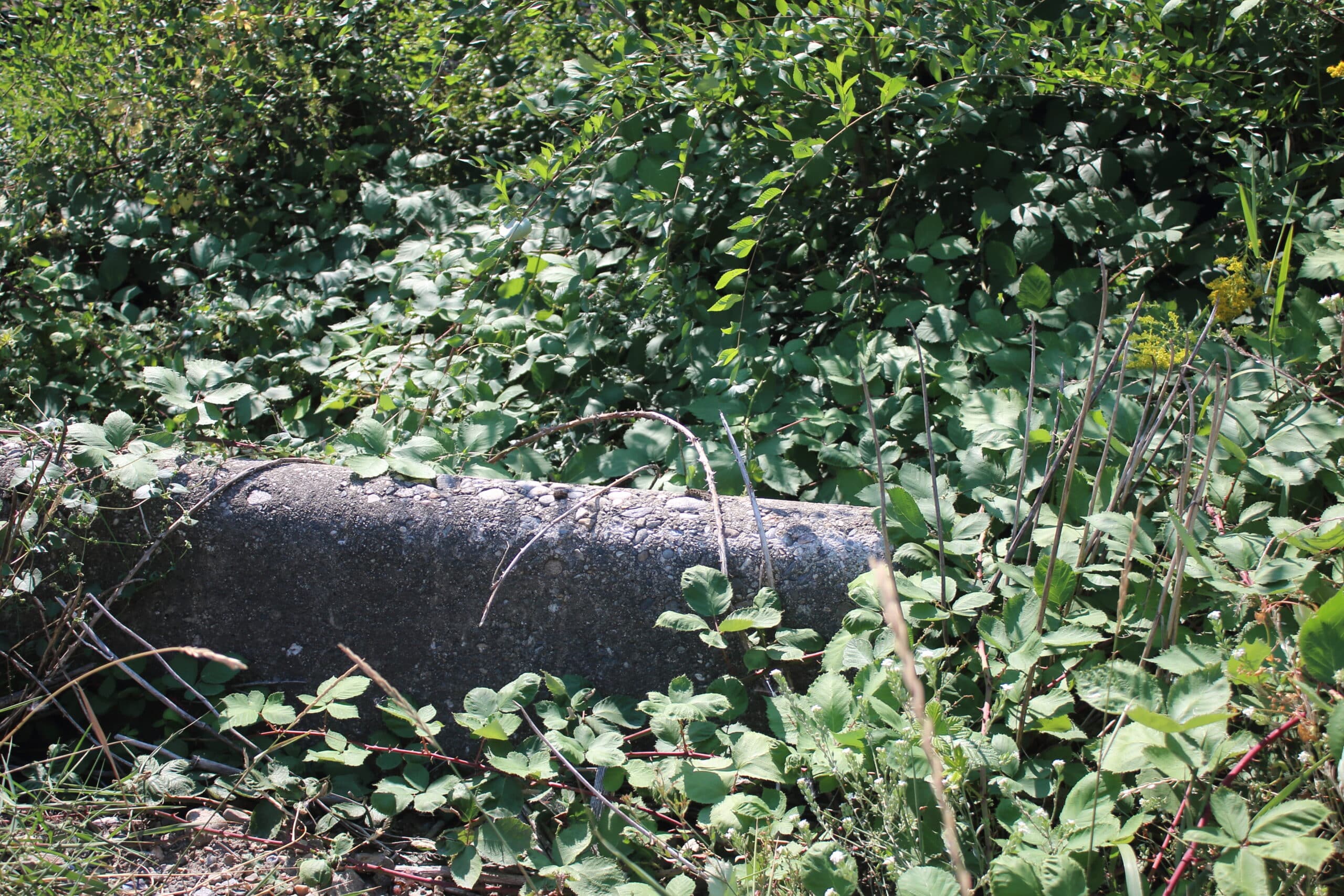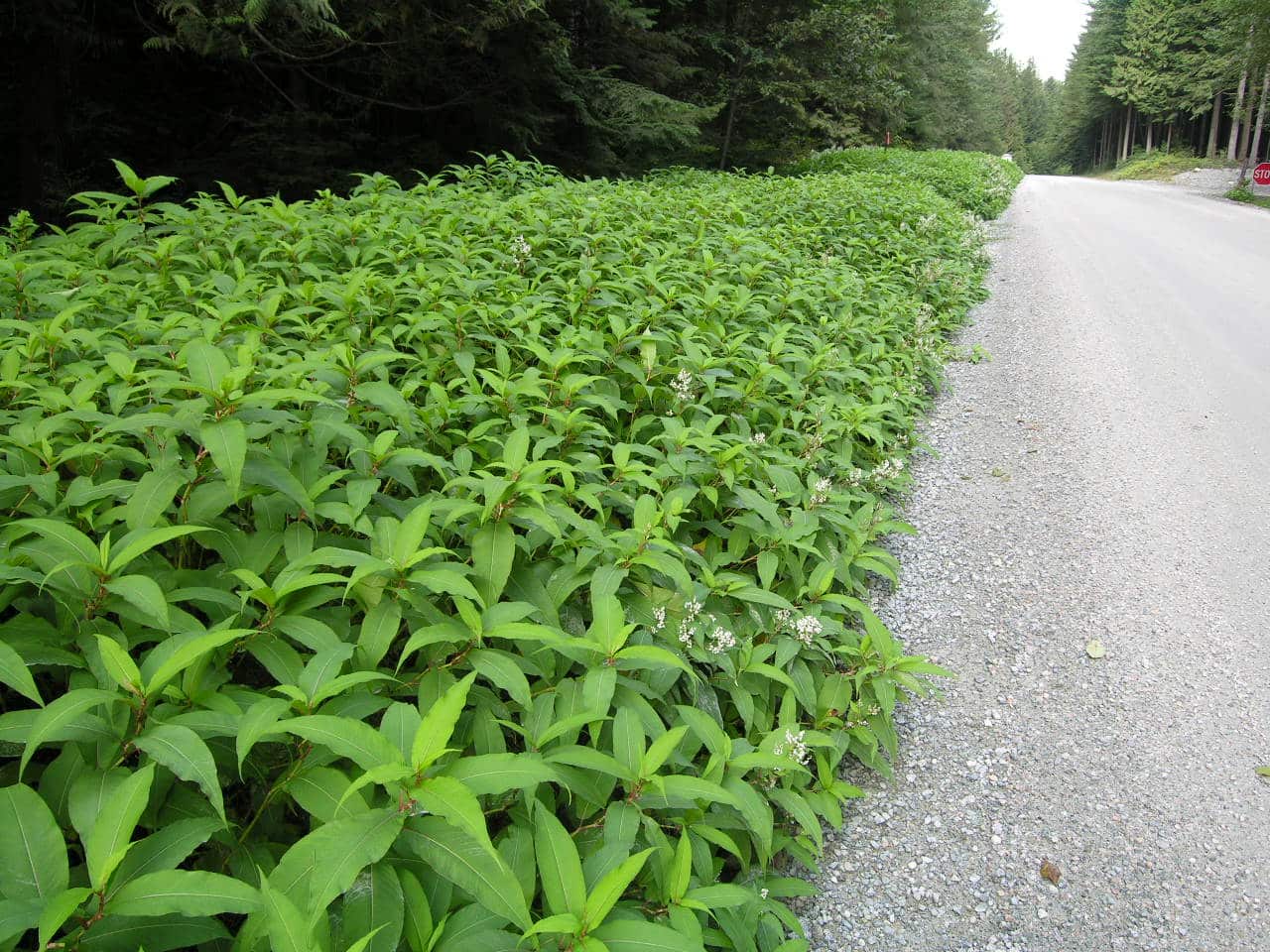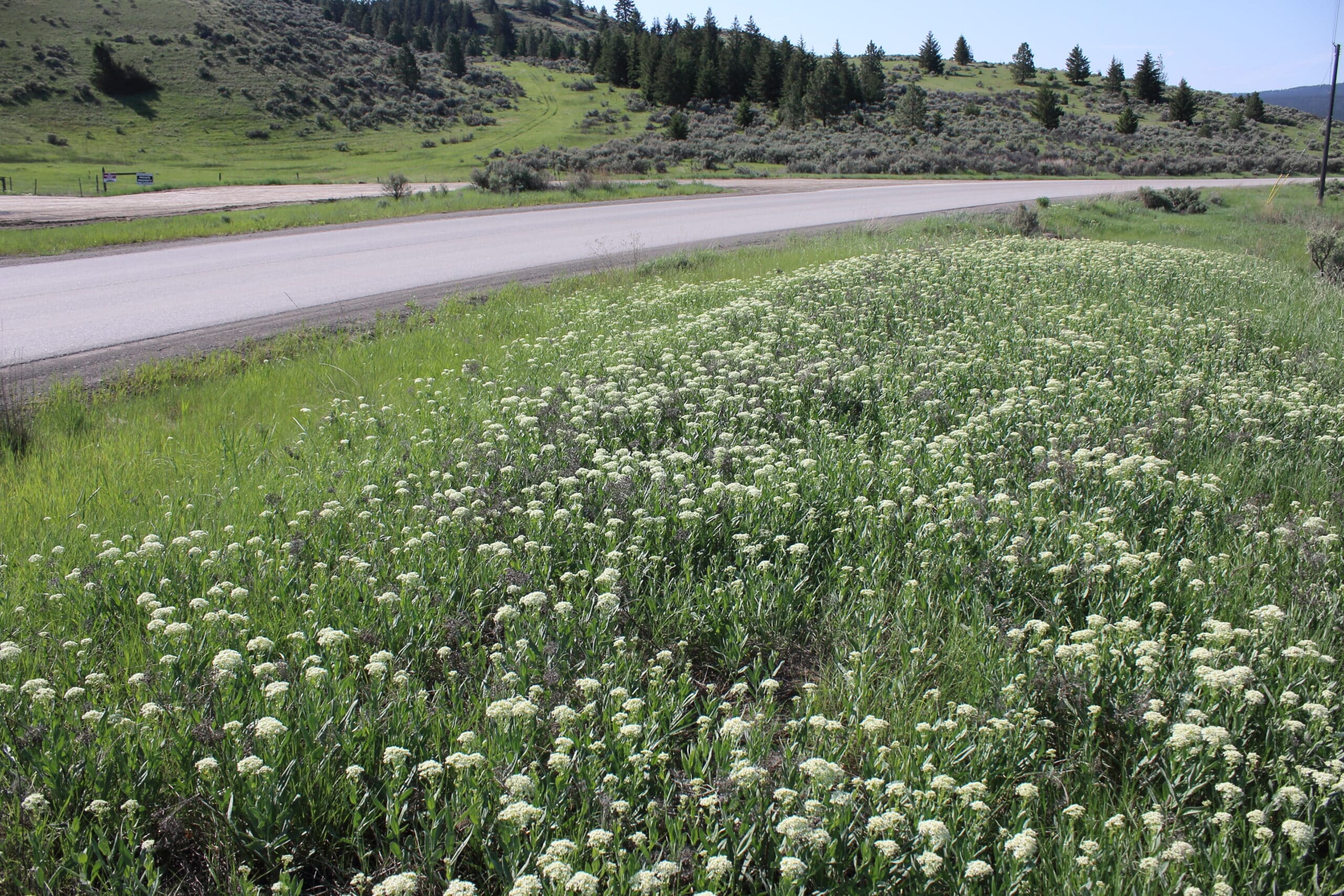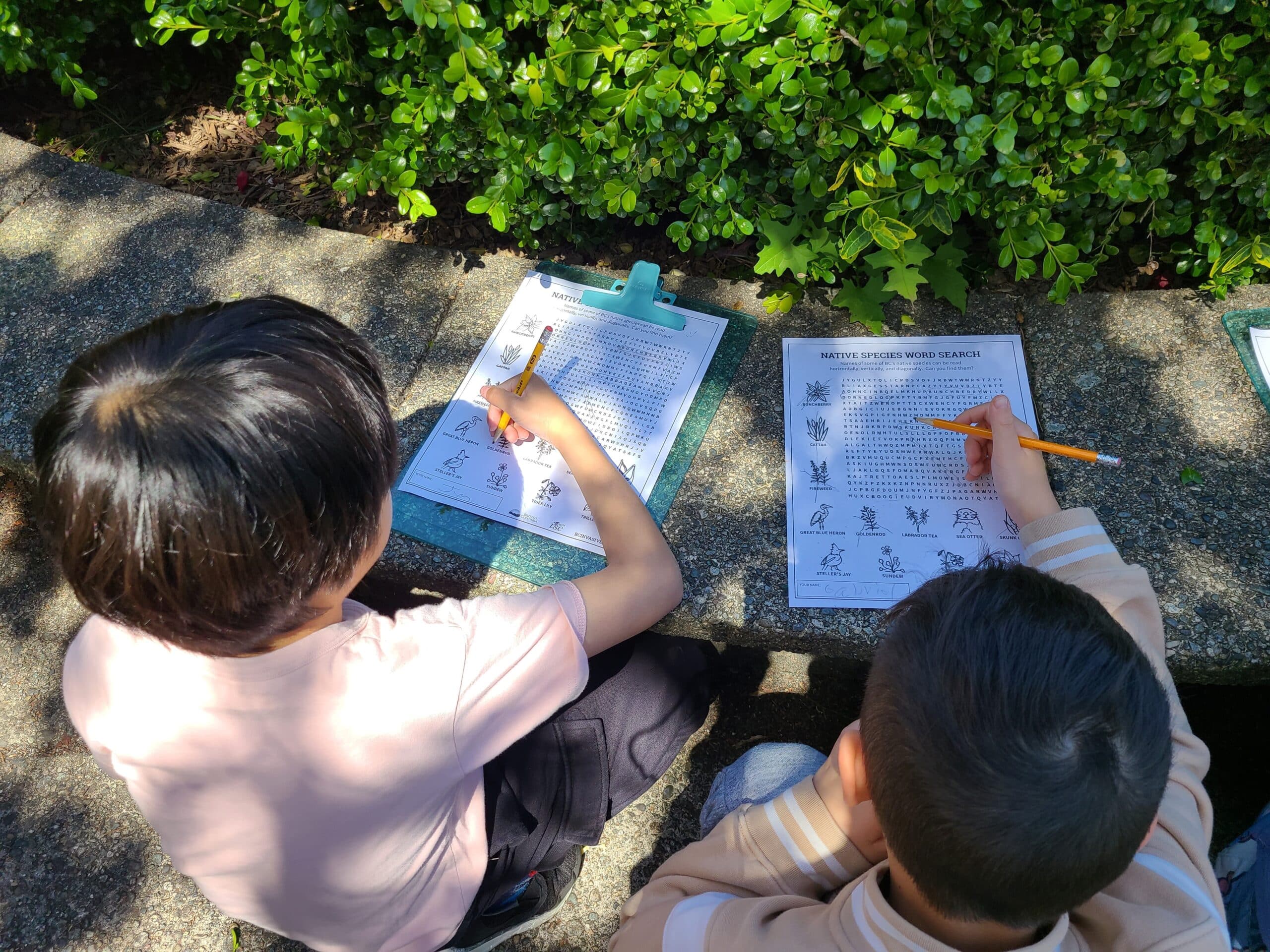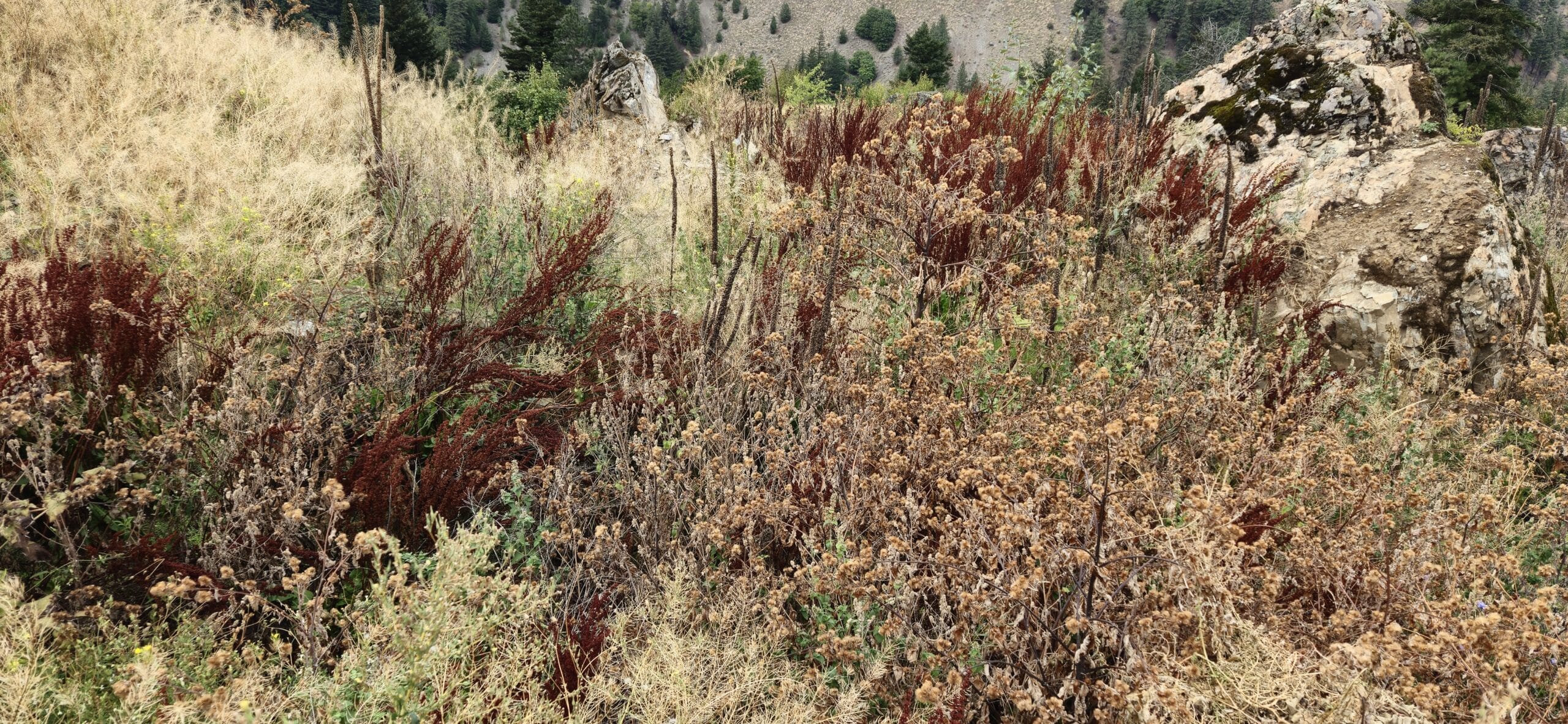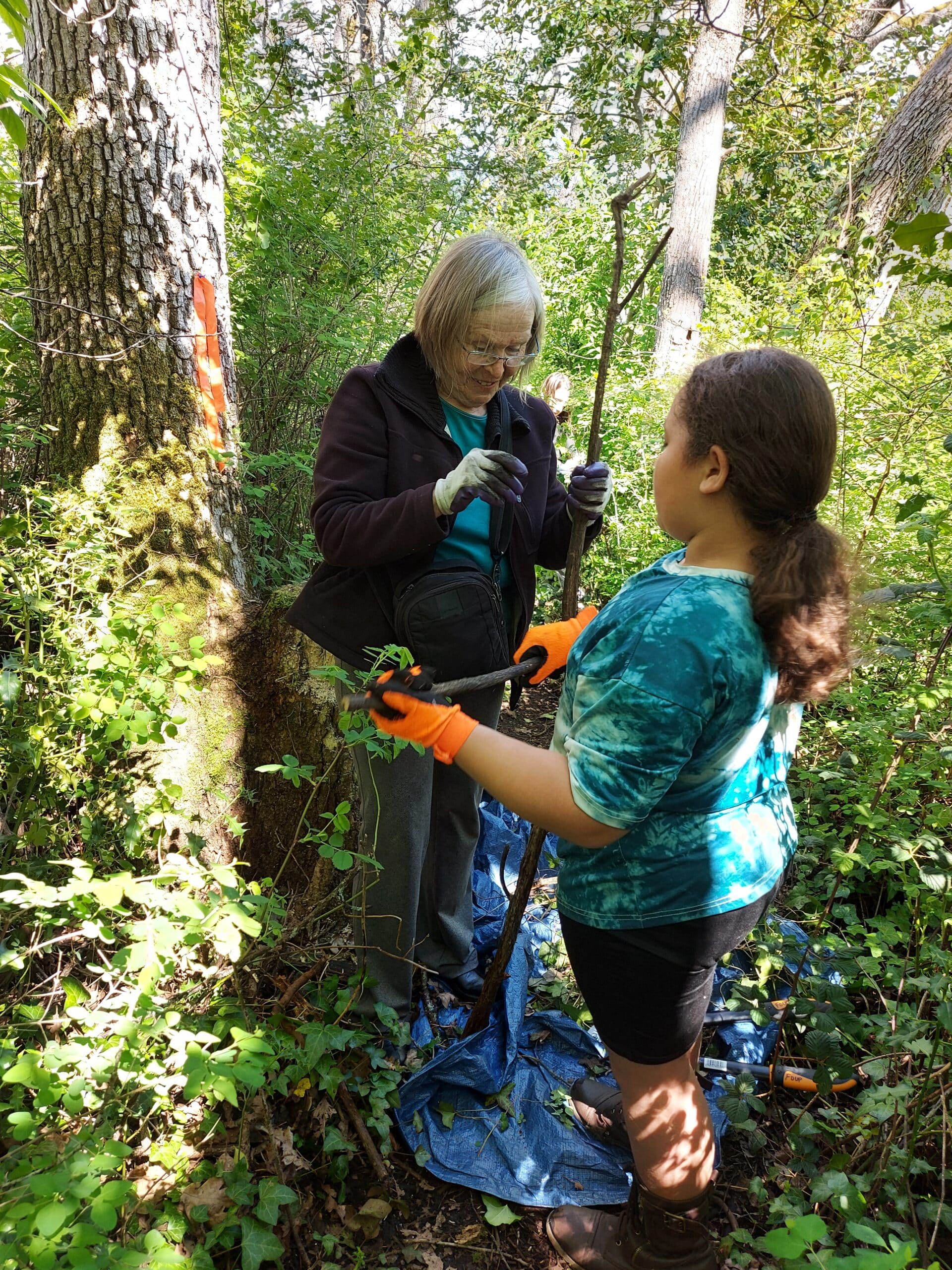Foxglove
Warning
Toxic or fatal if ingested
About This Species
Foxglove (Purple foxglove) is an extremely abundant exotic species native that Europe that has naturalized throughout the province, leading many to believe this plant is a British Columbia native! Found growing along roadsides, waste areas, and forests, a single foxglove specimen can produce 5,000 seeds each season. Every part of this plant (including the seeds) is extremely poisonous. In fact, the compound digitalis, used in heart medication, was originally sourced from the foxglove plant because of the effects it has on the cardiac system when ingested.
How to Identify
Foxgloves is a tall flowering plant with long, sturdy stems and a column of flowers. It can range from 0.5–1.5 m in height.
Its stem is covered in a column of purple, tubular, bell-shaped flowers. Inside the flowers are many speckles that pollinators use as a signal to land.
At the base of the plant is a rosette of hairy dark green leaves. Its leaves are hairy, and dark green and start as a basal rosette.
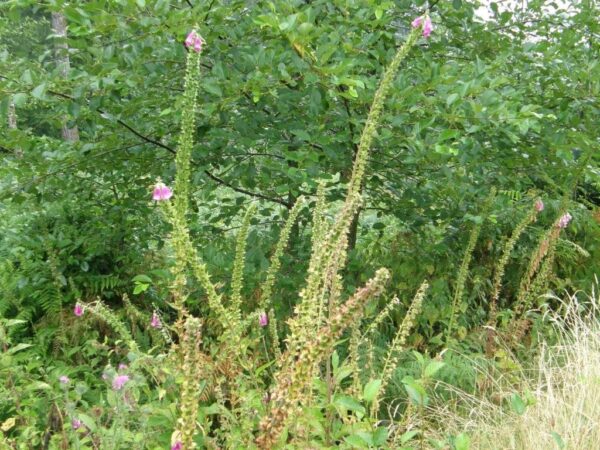
Take Action
Prevention is the best approach.
-
If you need advice about invasive species on your property or you are concerned about reported invasives in your local area, contact your local government or regional invasive species organization.

PlayCleanGo
Learn about best practices

Plantwise
Learn about best practices
A few non-invasive alternatives to plant instead of Foxglove include:
- Beardtongue (Penstemon barbatus)
- Blazing star (Liatris spicata)
- Large-leaved lupine (Lupinus polyphyllus)
- Monkshood (Aconitum spp.)
- Larkspur (Delphinium hybrids)
REPORT TO PROTECT BC’S BIODIVERSITY

Use the app
Observe and report to protect BC’s biodiversity

Report through this website
Use our form to tell us what you’re seeing and where.



